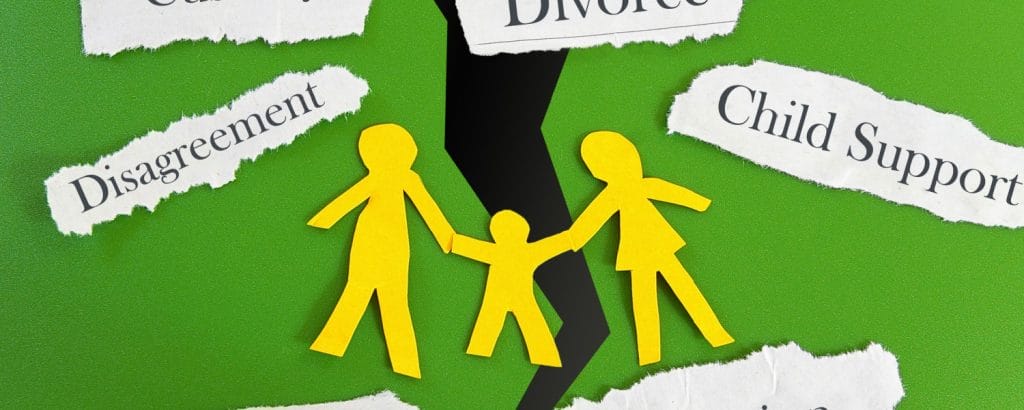Child support is a vital financial resource for the well-being of children in Illinois and across the United States. However, there may come a time when circumstances change, and you need to explore the possibility of terminating child support. In Illinois, child support can be terminated under specific conditions, but the process can be complex. In this article, we will provide a step-by-step guide on how to terminate child support in Illinois.

Step 1: Assess Eligibility
Before you embark on the process of terminating child support, it’s crucial to understand that eligibility for termination varies based on certain conditions. Common reasons for seeking termination of child support include:
- The child reaches the age of majority (usually 18 years old). At the age of 18 your child is now legally an adult, therefore child support payments would no longer be required.
- The child graduates high school. If the child has turned 18 but has not graduated high school, the courts may extend support payments until graduation. Some states can extend payments through college or until the child reaches the age of 23.
- The child gets married. Once they are married the support agreement will end now that they have each other to rely on and often move away together.
- The child joins the military.
- The child becomes emancipated. Emancipation can happen when a child has been living substantially on their own for 6 months and is over 16.
- A court order or agreement stipulates the termination. Child support orders typically have an end date which can be shown to the court to terminate your support payments.
To learn more, check out “Can Child Support Continue After 18 If Child Is In College?”
Step 2: Review Your Child Support Order
Familiarize yourself with the original child support order that established the payment obligations. Ensure you understand any clauses, stipulations, or conditions that might apply to termination. Many child support agreements have a termination date on the child’s 18th birthday or once they’ve graduated from high school. By law the agreement must go until the child graduates high school, or until they turn 19, whichever comes first.
Sometimes parents will agree to pay child support through college, and in Illinois it is possible for a court to order these extended payments if it is in the child’s best interests and the payments would not leave the parents in an unduly hard financial position. These clauses are often called sunset clauses because they mark when the agreement ends.
Child custody agreements are similar to child support agreements in many ways. If you want to learn more about child custody agreements, check out “What Happens To Custody When Child Turns 18?”

Step 3: Consult with an Attorney (Optional)
While it is possible to navigate the process of terminating child support on your own, it is highly recommended to consult with an experienced family law attorney like those at KGN Law Firm. An attorney can offer invaluable guidance, ensure all legal procedures are followed correctly, and represent your interests effectively. If your case is complex, then it may be best to employ the help of a qualified family law attorney in your area to help build a winning strategy for your case.
Step 4: Gather Documentation
To support your request for child support termination, gather evidence that supports the reason for termination. Depending on the specific situation, this documentation might include:
- Proof of the child’s age or emancipation status.
- Marriage certificates or military service documentation.
- Any court orders or agreements that pertain to the termination of child support.
- Any relevant financial records or information that supports your case.
Keep your documents well organized. There are specific procedures one must follow when introducing evidence, and good organization of your evidence will make this process easier. Most of this information can be found on your local county courthouse’s website. Your attorney can also help.
Step 5: File a Petition for Termination
To initiate the process, you’ll need to file a formal petition for child support termination. This petition should be submitted to the court that issued the initial child support order. You can find forms on the court’s website or ask for paper copies in person. Some states require these petitions to be filed online but you can always ask the clerks at the courthouse any questions you might have. Ensure all information included is accurate and complete.

Step 6: Attend a Court Hearing
In many cases, the court will schedule a hearing to evaluate your request for child support termination. The judge will read through your petition. At the hearing, you and the other parent will have the opportunity to present your case and provide supporting documentation. The court will consider all relevant factors before deciding.
You may have to serve the other parent with notice of the hearing before the date of the hearing. Sometimes you can ask the court for help doing this. They may ask a sheriff to give them the notice. Make sure you check the laws and regulations in your jurisdiction to make sure you’re following proper procedures, otherwise the process may take longer.
Step 7: Await the Court’s Decision
The court will carefully review the evidence presented during the hearing and make a decision regarding the termination of child support. If the court grants your request, you will receive an official order terminating child support. At this point the original child support order will be revoked, and payments can be stopped. If the court decides there is not enough evidence to end the agreement, then they may issue a new agreement with a new end date. It is important to follow whatever order the court gives. To learn more about court orders, check out “What Happens If You Do Not Follow a Family Court Order In Illinois?”
Conclusion: How to Terminate Child Support in Illinois
Terminating child support in Illinois is a legal process that requires careful consideration, accurate documentation, and adherence to legal procedures. Consulting with an experienced family law attorney is highly recommended to navigate this process effectively and ensure the best interests of all parties involved are upheld. Remember that the well-being of the child should always be the top priority, and child support should only be terminated when it is legally justifiable and in the child’s best interests.
MEET WITH AN ILLINOIS FAMILY LAW ATTORNEY TODAY
The Family Law attorneys at Koth Gregory & Nieminski understand that your family is the top priority, which is why we offer SAME-DAY APPOINTMENTS. If you need a divorce or other family law services, you can schedule your first meeting through our online appointment calendar. We look forward to meeting you.
Disclaimer: This article (How to Terminate Child Support in Illinois) may contain information that is outdated as Illinois law continuously evolves. Meeting with an experienced family law attorney is the best way to ensure you are receiving the most current information on How to Terminate Child Support in Illinois.

Published by Dustin Koth on November 7, 2024
